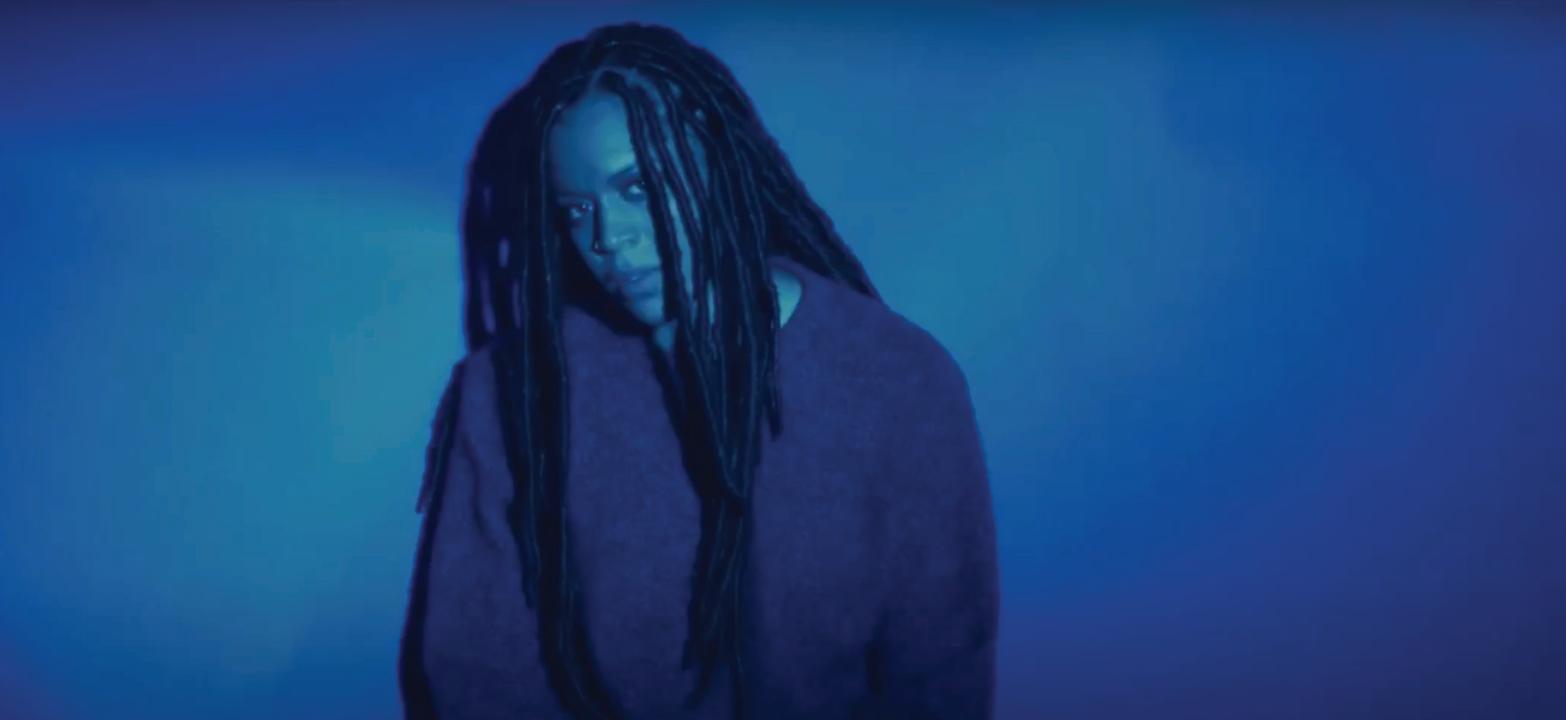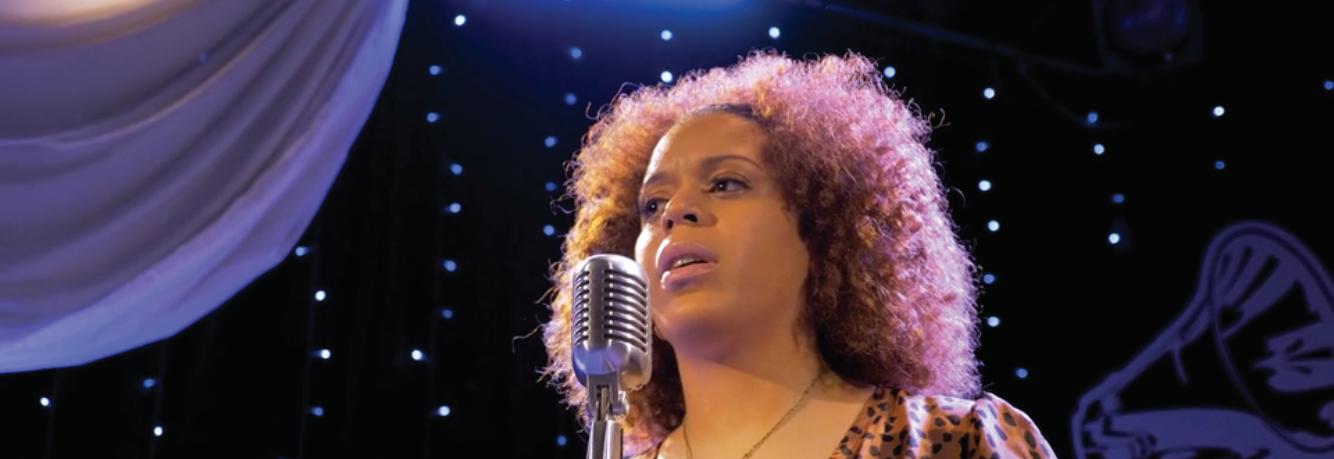
7 minute read
BEING TRUE TO BOTH SIDES OF MYSELF
Growing up, poetry had provided SJ Henderson (MSW/MPH ’20) with a way to break out of her shell and connect with the world around her. Now as a public health researcher and violence prevention advocate, art continues to play a role in how Henderson brings people together to affect change.
After graduating with a Bachelor of Science in Biology from Alabama A&M University in 2013, Henderson (pictured above) made the unconventional choice of taking a few years off to travel around the country and perform spoken word poetry.
While she traveled and performed, she set her sights on finding a graduate program that appealed to her interests in public health and advocacy.
“I liked the idea that I could go into public health and be a part of a team that really advocated for changes at a more systemic level,” said Henderson.
The reputation of UGA’s Master of Public Health program as well the opportunity to earn a second master’s in social work, eventually led her to enroll in the College of Public Health in 2017.
ADVOCACY THROUGH ART
Like many young Black people, Henderson had followed the story of Kalief Browder, who at 16 years old was arrested for allegedly stealing a backpack and incarcerated for three years at Riker’s Island. When Henderson learned later he died from suicide, years after his release without charge, she was overwhelmed with emotions.
“What trauma did he go through that, when he was finally home and could heal, he still couldn’t fathom a world where he could exist anymore? I really wished I could have been his friend, that I could have reached out to him and helped him find a reason to live.”
She started pouring her feelings into a diary, filling pages with random thoughts, poetry, and pages of research on systemic racism. This work would find its final form as “Letters to Kalief,” a docudrama aimed at raising awareness and fostering dialogue about mental illness, mass incarceration, systemic racism and other issues facing Black communities.
Henderson enjoyed bringing the creative language of poetry and prose together with research on the issues that mattered most to her.
“The project allowed me bring a variety of people together to create a bigger conversation. Art has the power to touch hearts. If I can get you to care about these issues, I can inspire you to fight for change with me,” she said.

SJ on the set performing her spoken word piece “Black is Badass” for fellow MSW alum Luke Slaboda’s multimedia project “Black is Beautiful.” (Contributed)
ADVOCACY THROUGH RESEARCH AND POETRY
Henderson later applied the research she’d done producing “Letters to Kalief” to her MPH capstone project, which looked at how exclusionary housing policies and infrastructural violence resulted in long-term toxic exposure for Black communities, further broadening her view on how racial inequities impact public health.
For her study, Henderson examined literature documenting contaminated wells in Dickinson County, Tennessee; carcinogens emitted from industrial plants in North Birmingham, Alabama; and the lead water crisis in Flint, Michigan. In all three cases, Black neighborhoods were isolated from health and community resources, and prolonged exposure to environmental toxins led to negative health outcomes including developmental delays, cancer, and death.
“In my thesis, I use the term infrastructural violence very intentionally when talking about environmental racism, because I want to make it clear that environmental racism is an act of violence,” she said.
In her introduction, Henderson shared the story of Freddie Gray, a 25-year old Black man who died from spinal injuries sustained during an arrest by police for the alleged possession of a knife. Gray grew up in a poor neighborhood with underfunded schools, and as a child, even tested positive for lead poisoning for which he never received any treatment, said Henderson.
“Yes, he died because of police brutality, but how was he living before that? How did this impact the person he was? There was so much wrong with his environment. He was already a victim to environmental racism before he died by police brutality.”
While her research offered ways to move forward through increased government transparency and accountability and connections with trusted members of Black communities, Henderson said efforts to rebuild trust in these communities will require a lot of work.
“There’s been so much harm caused by environmental racism that people in these communities, and these are really poor communities, have normalized having poor access to resources,” she said.
Henderson’s study, “Environmental Racism and the Contamination of Black Lives: A Literature Review,” was published in the Journal of African American Studies in January 2020.
And then the pandemic hit the U.S., and George Floyd, a 46-year Black man, was murdered by police in Minneapolis. Henderson found herself again turning to poetry in order make sense these devastating events.
As a part of Shelter Projects, a microfellowship awarded by UGA’s Willson Center for Humanities and Arts, Henderson created a spoken word performance, informed by her research, that reflected on the collective trauma and grief experienced by the Black community during the “twin pandemics” of systemic racism and COVID-19.
“Define Pandemic?” debuted in Flagpole Magazine, and Henderson was invited to present the work at both the College’s January 2021 State of the Public’s Health Conference and the Healthcare Georgia Foundation’s Connections Conference in March 2022. A $5,000 grant from the Foundation allowed her to produce a video to accompany her poem.
You can view the video at: https://www.healthcaregeorgia.org/ define-pandemic/
“You could never have told me as an undergrad, always looking for her next research opportunity, that my first invitation to speak at a public health conference would be because of my poetry,” said Henderson. “The experience helped me realize that not only could I do both, but that I was more valuable doing both and being true to both sides of myself.”
ADVOCACY THROUGH LEADERSHIP
Henderson graduated in December 2020 with master’s degrees in social work and public health and now serves as Director of Violence Prevention and Education at Wilmington College.
In the role, she is leading new efforts, funded by a grant from the U.S. Department of Justice’s Office of Violence Against Women, to strengthen services provided to victims of domestic violence, dating violence, sexual assault and stalking. Henderson also hopes to play a major part in creating policies that are more trauma-informed and survivor-centered.
“It is definitely difficult at times to be in this position,” said Henderson. “But I feel my work advocating for students continues to be empowered by my experiences on the ground as a volunteer, and as a researcher, fighting for survivors.”
WHO INSPIRED ME?
RICK DUNN | CEO, ATHENS CLARKE COUNTY HIGH SCHOOL COMPLETION INITIATIVE
“I met him through MEU Radio but he became a mentor and helped me get involved in the community in other ways as he is very involved himself. He told me about REACH and invited me as a guest speaker at Foothill Charter High School where I discussed overcoming adversity. He was the first person to tell me about certain places I could volunteer my time and certain people I should meet that I eventually did as I continued to seek my own growth and purpose. His influence was COMMUNITY.”
SHANE SIMS | DIRECTOR, PEOPLE LIVING IN RECOVERY
“I met him through a class where he was a guest speaker and reached out to him 1:1 so I could hear more about his story. He was serving life in prison and is now the executive director of the peer-led recovery nonprofit People Living in Recovery (PLR), serves as a chaplain for the ACC Police Department, as well as an advisory board member. He also is very involved in the community. He mentored me at a time where I needed to re-learn resilience and who better than him. He showed me how to be resilient without being bitter; I accepted the things that we have to lose along the way or the tough lessons we have to learn to grow and the fact that we can have accountability in situations even if we are the victim and that acceptance is freeing. His influence was RESILIENCE.”
TRAVIS WILLIAMS | DIRECTOR OF OPERATIONS AND PROGRAMS, CHESS & COMMUNITY
“I met him through Chess and Community. He was basically my supervisor and became my mentor. He helped me further develop my critical thinking skills and self-awareness. He also showed me that it was OK to speak up, but you have to know the consequences of speaking up and be OK with that reality and sacrifice that you will constantly have to make as a change agent. At a time where I was slowly letting go of who I was because I thought I was sabotaging myself through unapologetic advocacy, he helped me hold on and showed me how to be more strategic and more responsible with my voice. He is also very involved in the community. His influence was INTENTIONALITY.”
Cover Photo: SJ Henderson on the set of her “Letters to Kalief” project in 2018. (Contributed)







